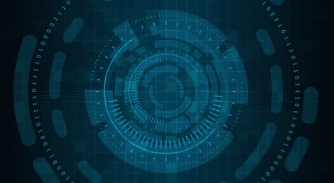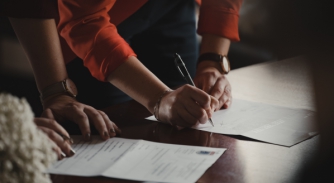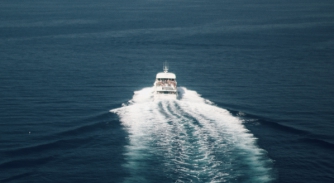Who are the experts anyway?
Learning who to trust in an age of disinformation …
We look for answers and guidance to inform decisions in a complicated world. The superyacht sector is growing rapidly and facing the need to adapt and change to continue to thrive sustainably in an evolving market. This reasonably standard assertion can apply across almost all business sectors, and it will require continued reliance on expert guidance. But do we know who to trust? There is a lot of information out there and only slightly fewer bad interpretations of said data. As the industry tackles the complex issue of sustainable growth, the baseline for data and research has been lifted, and the need for expert advice has never been higher.
When it became apparent that a global spread of COVID was already taking place, the world scrambled for answers. Most people are fortunate to be experts in one thing. Maybe two. Real, proper experts with the level of understanding to advise on highly consequential decisions. Anyone that claims more is probably spreading their grey matter a bit thin. Due to the pandemic, the once-obscure group of highly specialist academics who study coronaviruses were suddenly thrust into the limelight. The actual number of epidemiologists and virologists that specialise in human coronaviruses could fit into a WhatsApp group. And why not? After all, there had not been a global influenza pandemic since 1918. The fact that this flu had fallen out of living memory had led many of us to be complacent. The infrastructure networks were not in place, most governments only had paper plans and no surplus of the essential equipment to contain an outbreak.
As we process the pandemic, there is a tendency to cherry-pick headlines, portions of abstracts and soundbites from talking heads on news networks to form a narrative that fits a convenient worldview. The pandemic has taught us to speak like biologists, and a diet of complex medical terms has overinflated our sense of expertise. As we slowly allow more of our focus to retreat from COVID and back to the issues of sustainability and growth, we should learn from the lesson garnered from the pandemic; data can come thick and fast, but not everyone is an expert.
The need to decarbonise has taught us to talk like chemists and physicists in much the same way. Words and definitions matter in a crisis, and with legislation such as the EU Taxonomy regulations coming into effect, they will have consequences for the superyacht industry. Boris Johnson misunderstanding what herd immunity meant led to a two-week delay in implementing the first lockdown. Superyacht owners mis- understanding words like 'hybrid' may have a knock-on effect on the order book that is irrevocable. Incorrectly marketing systems and products are likewise irresponsible, as is, of course, miscommunication of green technologies. I was rightly scaled by a colleague in the industry for a flippant remark in an article about hydrogen safety onboard. They were right, I didn't know what I was talking about, and my words, however small, have meaning.
It may not feel like it, but we have pulled off a miracle with the vaccine development, but the infodemic of bad information still hinders it. Just because somebody is a doctor does not mean they understand virology. Just because somebody is a virologist does not mean that they are experts on human coronaviruses. Likewise, in our industry, as the problems we face become urgent and the answers more complicated, we may need to step back and listen to the experts and trust in the data.
The need for decarbonisation has been signposted for 50 years, but we are behind the eight ball. We need to get it right, and we can start by disseminating good information, us in the media and intelligence sector more than any. Check your sources and make informed decisions. Not everyone is an expert, and if your sample size is one for an assertion, it's not you either. The next steps are vital. The superyacht industry is in a phenomenal position of strength concerning orders and apparent interest. We should ensure that each decision is based on the most robust possible foundation of research and expert advice.
NEW: Sign up for SuperyachtNewsweek!
Get the latest weekly news, in-depth reports, intelligence, and strategic insights, delivered directly from The Superyacht Group's editors and market analysts.
Stay at the forefront of the superyacht industry with SuperyachtNewsweek
Click here to become part of The Superyacht Group community, and join us in our mission to make this industry accessible to all, and prosperous for the long-term. We are offering access to the superyacht industry’s most comprehensive and longstanding archive of business-critical information, as well as a comprehensive, real-time superyacht fleet database, for just £10 per month, because we are One Industry with One Mission. Sign up here.
Related news

Painting ourselves into a corner
What are the consequences of the industry's quest for digitalisation and data transparency?
Technology

Defining sustainability - EU Taxonomy Regulation
A profound conversation with Dr Vienna Eleuteri, initiator & vice chair of Water Revolution Foundation
Business
-copy.png)
Managing uncertainty
As the world begins to open up Pantaenius consider how charter and yacht operations have been affected
Business


Who Fled the Med?
Migratory data from The Superyacht Agency reveals how the pandemic has affected Med cruising patterns
Owner
Related news
Painting ourselves into a corner
3 years ago
Defining sustainability - EU Taxonomy Regulation
3 years ago
Managing uncertainty
4 years ago
Leaky contracts
4 years ago
Who Fled the Med?
4 years ago
NEW: Sign up for
SuperyachtNewsweek!
Get the latest weekly news, in-depth reports, intelligence, and strategic insights, delivered directly from The Superyacht Group's editors and market analysts.
Stay at the forefront of the superyacht industry with SuperyachtNewsweek



